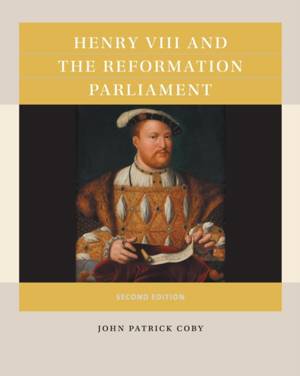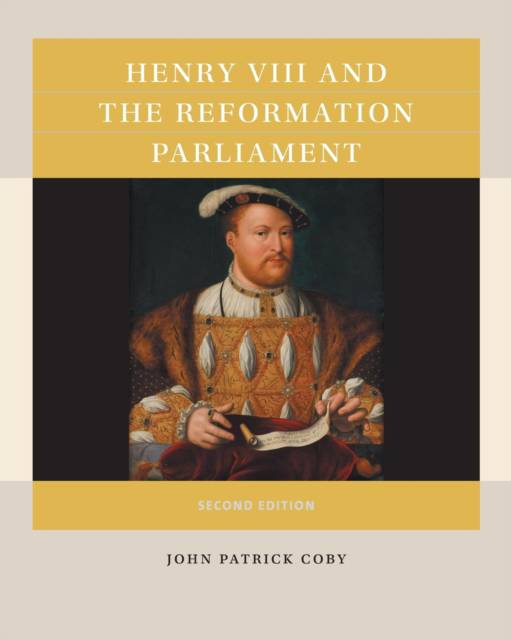
- Afhalen na 1 uur in een winkel met voorraad
- Gratis thuislevering in België vanaf € 30
- Ruim aanbod met 7 miljoen producten
- Afhalen na 1 uur in een winkel met voorraad
- Gratis thuislevering in België vanaf € 30
- Ruim aanbod met 7 miljoen producten
Omschrijving
Henry VIII and the Reformation Parliament transforms students into English lords and commoners during the tumultuous years of 1529 to 1536. Cardinal Wolsey has just been dismissed as lord chancellor for failing to obtain an annulment of King Henry's marriage to Catherine of Aragon. Thomas More, the humanist author of Utopia, is named as Wolsey's replacement. More presides over Parliament, which the king has summoned in the hope that it somehow will find the means to invalidate his marriage, thus freeing him to marry his new love, Lady Anne Boleyn. Matters of state also apply, because Henry has no male heir to carry on the Tudor line, and Queen Catherine has passed her childbearing years. But will Parliament be content with solving the king's marital and dynastic problems? For there are some in Parliament who wish to use the royal divorce to disempower the English church, to sever its ties to papal Rome, and to change it doctrinally from Catholicism to Lutheranism. Others, however, oppose the divorce, oppose secular supremacy and independence from Rome, and oppose this heretical creed filtering in from the continent. More is their leader, for as long as he can survive. Thomas Cromwell, reputed a Machiavellian, leads the king's party. The king himself is ambivalent about the reformation unleashed by his "great matter," as the divorce campaign is called, and so the conservatives are loosed to prosecute reformers as heretics, while the reformers are loosed to prosecute conservatives as traitors. Meanwhile, outside England sits the greatest power in all of Europe, the Holy Roman Empire under King Charles V of Spain -- who happens to be the nephew of Catherine! How will the emperor respond to this effort to put aside his aunt?
At issue in the game is the clash of four contending ideas: traditionalist Christianity, reformist Protestantism, Renaissance humanism, and Machiavellian statecraft. Depending on the outcome of this contest, the modern nation-state will, or will not, be born.
Specificaties
Betrokkenen
- Auteur(s):
- Uitgeverij:
Inhoud
- Aantal bladzijden:
- 176
- Taal:
- Engels
- Reeks:
Eigenschappen
- Productcode (EAN):
- 9781469647555
- Verschijningsdatum:
- 1/03/2019
- Uitvoering:
- Paperback
- Formaat:
- Trade paperback (VS)
- Afmetingen:
- 203 mm x 254 mm
- Gewicht:
- 362 g

Alleen bij Standaard Boekhandel
Beoordelingen
We publiceren alleen reviews die voldoen aan de voorwaarden voor reviews. Bekijk onze voorwaarden voor reviews.







